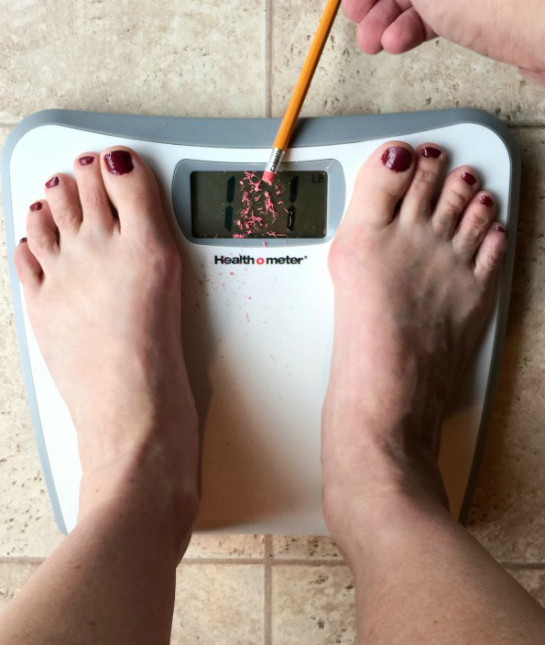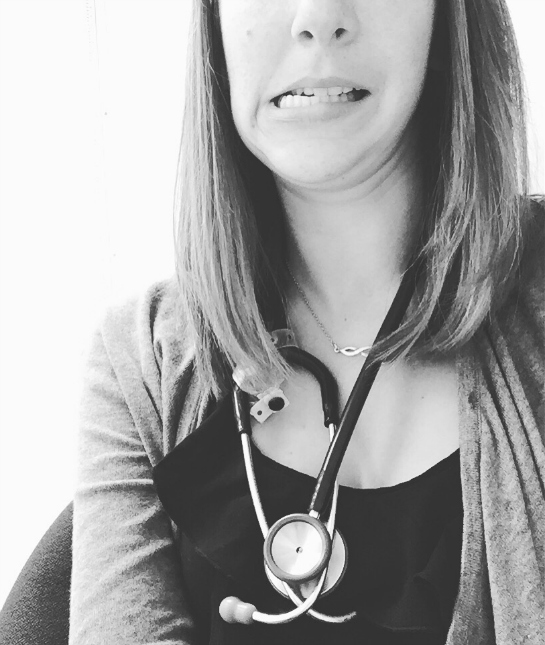Why can't I lose weight?

There are many reasons beyond too many calories and too little exercise that are making it impossible for you to lose weight. Some of those reasons require medical intervention. If you haven't brought it up with your doctor, be sure to do so. A month before your next checkup, record everything you eat and any physical activity and show it to her, when she brings up diet and exercise.
Why can't I stop gaining weight?

Sudden and persistent weight gain can be a symptom of an underlying medical issue. If you don't have a long relationship with your doctor, he may assume at first that you're eating too much and moving too little. Go to your next appointment prepared to discuss why you're suddenly gaining weight, and whether there are tests you should undergo to rule out something worse than too many late-night carb binges.
What's with all this facial hair?

One surprising sign of aging for many women is the sudden sprouting of chin whiskers. But sometimes, excessive facial hair is a sign of excessive hormone production. Ask your doctor whether this new facial hair appears normal or if something else is going on.
Are my allergies serious?

People often adapt to the symptoms of their allergies—sneezing, runny nose, itchy eyes, etc.—to the point that they don't realize they're getting worse. The side effects of allergies can veer into life-threatening. Even if you just have a stuffy nose in spring, or uncontrollable sneezing around your mother-in-law's cat, ask your doctor about ways to manage the symptoms and when to know you need stronger treatment.
Do I have cancer? A tumor?

We all know someone who jumps to the worst case scenario at every ache and pain (maybe that someone is you?) but there's a lot to look out for when it comes to our health. Rather than losing sleep about a weird knot in our skin or a headache that won't go away, make an appointment with your doctor and tell them to cut to the chase. The answer is likely, "No, it's just allergies." But the never-ending cramps? They might decide to run a few tests.
Why do I get so many headaches?

Flag frequent headaches with your doctor, since they could be a sign of underlying medical issues. Even those that have no obvious cause can be treated, sometimes with stronger medicine than you can get at the drugstore. In any case, your doctor should be made aware of your headaches, so that you both will know if they're getting more frequent or worse.
What happened to my sex drive?

A change in a person's sex drive can be an embarrassing thing to admit, even in confidence to one's doctor. While hormonal swings as we age are normal, a drastic change in one's sex drive may be a sign of a deeper medical problem. Your doctor might want to run more tests—or refer you to therapy if she suspects it's due more to problems in your relationships. Either way, outside help is necessary.
Am I too old to get pregnant?

Female fertility has a wide range and really comes down to the individual's DNA and health. So, while your doctor won't likely be able to say for certain your chances of getting pregnant, she can talk through your health history with you and, if you've already struggled to get pregnant, refer you to fertility specialists who can provide more intensive therapies and strategies. Your doctor should also be able to talk through with you when you no longer have to worry about getting pregnant, and when birth control is no longer necessary to avoid pregnancy.
Am I clinically depressed?

Depression is a strange disease wherein the worse it gets, the less able you are to identify it yourself so that you can get help. If you're prone to bouts of even low-level depression, ask your doctor about it. Find out where the line is from feeling down to needing treatment, and put a plan in place so that others can step in and help you receive it if that time ever comes.
Can you recommend ... a different doctor?

A trusting relationship with one's doctor is key to getting good health care. When you feel as if your doctor isn't a great match, it's better to address sooner than later. If it's easier to do over the phone, then make time for the call. If you know it during an appointment, calmly explain that while you know it's a bit awkward to say, you think you'd feel more comfortable with a doctor who is female/speaks your home language/shares your cultural background/has experience with treating obese or infertile or crunchy/hippie patients. They might even have a colleague in their practice who is a better fit.
How can I stop peeing when I sneeze?

What many health advocates want women to know is that peeing when you sneeze (or laugh or jog or cough) is common among women who have given birth or are of a certain age, but it should not be normalized. Incontinence can be a sign of weak muscles in the pelvic region, which can lead to more serious problems, such as prolapsed uterus or worse. Tell your doctor, who can check for impending issues and may be able to recommend specialists, such as physical therapists who specialize in strengthening muscles that support the pelvic floor.
Is my vagina normal?

Ads pop up nearly everywhere telling women they can fix their vaginas. Who even knew they were broken? Look, it's your body and you deserve information about it, something more personal and certain than a scan through Google images. So during your next annual exam, just ask, "Hey, Doc, totally weird question that probably most of your patients are wondering: How do I compare? Is my vagina normal?" The answer is likely, "yes," but now you've started a dialogue and you can get down to the size/arrangement/skin folds/etc. details.
Will sex always be painful for me?

If sex has recently become painful, be sure to tell your doctor. At the end of that discussion, ask if this is the new normal. Painful sex is a sign of other issues, either structural or hormonal—both of which are treatable. But you need to know whether you should make changes in how you approach sex with your partner, and for that, you both need to understand whether the changes are permanent.
Do I poop enough?

Is once a day enough? Less than once a day? Is that normal? Dangerous? Treatable? Doctors ask parents about their kids' bowel movement frequency but often stop once we're grown-ups. If you're not regular, or don't go frequently, just ask. Maybe it's OK, maybe you need more fiber, or maybe you're setting yourself up for future problems.
Do I poop too much?

More than once a day? After every meal? Regularity is one thing, but if it's too frequent, you might have other issues that need to be addressed. Again, just bring it up with your doctor. Look, they've heard it all, so why not pile on? So to speak.
How will I know I'm in menopause?

Younger women tend to think you wake up one day and stop menstruating—which is possible. But more commonly, women's periods lighten up, become sporadic, happen less and less frequently. If you're curious or would simply like to be prepared, take notes about your periods over a few months or a year, and bring it to your annual exam. And just ask: Am I in menopause?
Why do I stink? Do I stink?

Hormones determine how we smell and hormones change over time. Therefore, how we smell changes, too, and sometimes that can freak us out. If you think you've started smelling bad, tell your doctor. It's less a question about vanity and more of an attempt to flag symptoms of something that needs to be treated. But you can also ask if there's a way to mask or change the new odors you don't like.
Why am I wetting the bed?

It's not totally unheard of for adults to wet the bed from time to time, and some evidence shows that it could be an inherited trait. Bed wetting for grown-ups might also be a sign of a hormonal problem associated with the kidneys. Your conversations with your doctor are private and bed-wetting is something you definitely want to ask them about.
Am I an addict?

Binge and addiction are part of our everyday language, though it's most often in reference to streaming TV shows. But true dependency is nothing to exaggerate or make light of. If your drinking, eating or recreational drug use has increased in the time since you first started seeing your doctor, be sure to bring it up. They may have short tests to determine where you're at, advice on management or even direct talk about cutting back or giving it up completely.
Can I have a few minutes to ask more questions?

Doctors' time with each patient is limited. But you only see them once a year for a checkup. Be assertive and, if you have more questions, ask for more time. It's helpful to keep your questions brief, particularly if you have several. But don't short-change yourself. And acknowledging that you know they're busy and have other appointments shows you don't take their time for granted. If all else fails, just start asking.




